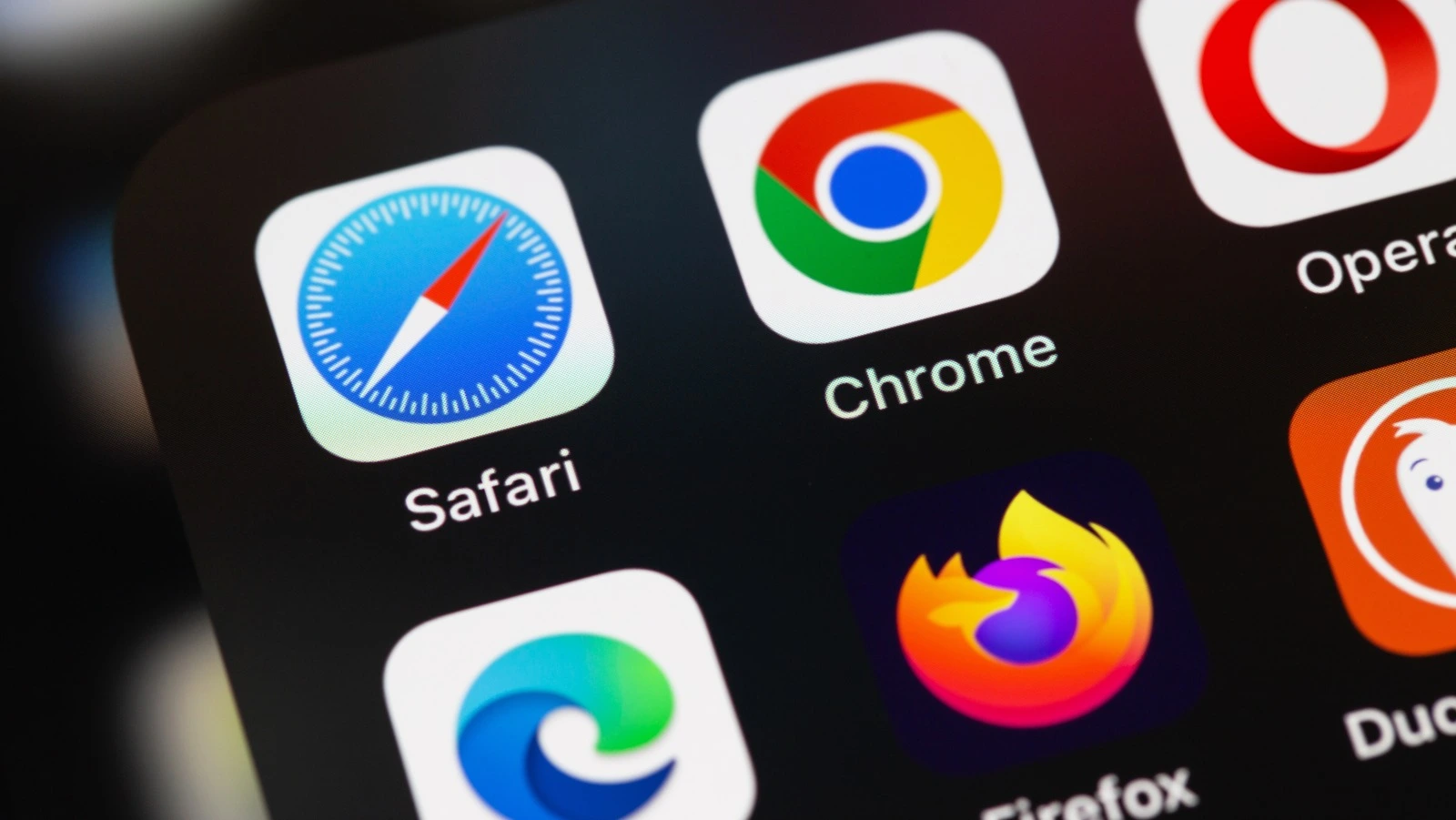In a bold move that has shaken the tech world, Apple warns iPhone users to stop using Google Chrome and switch to Safari instead. The warning is not just about brand loyalty it’s about protecting your digital privacy.
With rising concerns about tracking, fingerprinting, and data harvesting, Apple is positioning Safari as the safer, smarter, and more private alternative.
For millions of iPhone owners, this message matters. Chrome might be the world’s most popular browser, but Apple claims its rival fails to protect users against today’s most dangerous online threats.
Meanwhile, Safari’s latest updates especially in iOS 26 promise to close loopholes and give iPhone users a real shield against trackers and data collectors.
In This Article
- Why Apple warns iPhone users against Google Chrome and the growing privacy war.
- How Safari’s features like advanced tracking protection and IP masking actually work in real life.
- What this browser war means for the future of mobile internet security.
Apple vs Google The Battle for Your Browser
Google Chrome dominates the browser market with more than 60% global share. On desktops and Android devices, it’s almost untouchable.
But on iPhones, Safari holds a unique advantage it’s the default browser, deeply integrated into iOS. Now, with Chrome gaining traction even among iPhone users, Apple is drawing a hard line.
Its message is blunt Safari is about privacy, Chrome is about tracking. This is where the Apple Safari vs Google Chrome debate heats up.
Apple has even published side by side comparisons that highlight, Safari blocks them; Chrome doesn’t. URL Trackers, Safari automatically strips them Chrome allows them.
IP Address Masking, Safari hides your IP Chrome leaves it exposed. Safari limits them Chrome’s marketplace is full of risks. This is essentially the same playbook Microsoft uses when promoting Edge over Chrome, but Apple has a stronger advantage Safari is already on every iPhone.
Apple’s Privacy Playbook Why iPhone Users Should Care
So why exactly is Apple privacy warning iPhone users against Chrome? It comes down to one word trust.
In 2024, Google quietly reintroduced digital fingerprinting a controversial tracking method that combines device details screen size, fonts, battery levels, system settings to create a unique user profile.
Unlike cookies, this can’t be deleted or turned off. For advertisers, it’s a goldmine. For users, it’s surveillance. Apple argues that Chrome enables silent tracking across websites, while Safari actively blocks it.
With Safari advanced tracking protection, Apple says it can disrupt fingerprinting, making it harder for companies to follow you around the web.
Take Sarah, a freelance designer in New York. After switching from Chrome to Safari, she noticed fewer personalized ads chasing her across platforms. I realized just how much I was being watched, she says. Safari gave me breathing room from that constant surveillance.
The real game changer came with the Apple iOS 26 privacy update. Apple quietly enabled Advanced Tracking and Fingerprinting Protection across all browsing sessions not just private mode.
Your IP address is automatically hidden from known trackers. Safari strips URL trackers without you needing to configure settings.
Websites can’t build a consistent digital fingerprint of your device. This step makes Safari not just another browser, but a true privacy first browsing tool.
The truth is, Google’s business model depends on ads and data collection. Chrome is designed to protect against obvious malware and phishing threats, but when it comes to Chrome tracking vs Safari security, Google’s hands are tied.
It cannot fully block advertisers without hurting its own revenue. Apple, on the other hand, doesn’t rely on ad dollars. That gives Safari freedom to go all in on privacy.
Patrick Wardle, Apple Security Researcher: Fingerprinting is one of the most insidious forms of tracking because it’s invisible. Safari’s new protections are a step in the right direction.
Eva Galperin, EFF Director of Cybersecurity Privacy should be the default, not a luxury feature. Apple’s push is raising the bar for the entire industry.
These expert voices confirm what Apple is signaling browsing is no longer about speed alone it’s about safeguarding personal identity.
Apple vs Google Browser War
This battle isn’t just about browsers. It’s about ecosystems, power, and the future of digital rights. Apple vs Google browser war is essentially a fight for user trust.
If Apple wins, Safari becomes the gold standard for mobile privacy. If Google wins, Chrome remains dominant but at the cost of deeper surveillance.
This conflict is shaping the future internet where the balance between convenience and privacy will decide who leads the next decade.
How iPhone Users Can Stay Safe
Switch to Safari as Default, On your iPhone, go to Settings > Safari > Default Browser and ensure Safari is active. Enable Private Browsing, Even with iOS 26, private browsing adds another shield.
Review Browser Permissions, Block unnecessary access to your camera, microphone, and location. Ensure you’re on the latest version of iOS for the newest protections. Follow news on browser updates privacy features change rapidly.
Apple’s message is loud and clear, Apple warns iPhone users to stop trusting Chrome if privacy matters. Safari, with features like advanced tracking protection and iOS 26 updates, positions itself as the guardian of iPhone security.
The bigger question is whether users will listen. Chrome offers convenience and speed, but at the cost of personal data. Safari is promising a safer path forward one where your browsing habits belong to you, not big tech advertisers.
The best browser for iPhone privacy today is Safari, and Apple wants you to know it. The choice is yours stay with Chrome’s ecosystem or embrace Apple’s vision of private browsing.
What do you think? Will you switch to Safari or stick with Chrome? Share your thoughts in the comments below.
